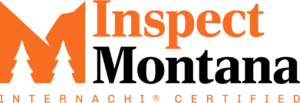Triple Net Lease (NNN) Inspection – What Is It?

In the world of commercial real estate, few terms are as important to understand as a Triple Net Lease (NNN). For landlords, investors, and tenants alike, navigating the nuances of NNN leases can mean the difference between a profitable investment and a costly mistake. One of the most crucial yet often overlooked components of this lease structure is the Triple Net Lease inspection. Especially in regions like Western Montana, where commercial development is steadily growing, understanding what a NNN lease inspection entails is vital for all stakeholders involved. From verifying property condition to ensuring compliance with lease obligations, a comprehensive inspection can safeguard long-term interests and mitigate future liabilities.
Triple Net Leases: The Foundation of NNN Inspections
To appreciate the role of a Triple Net Lease inspection, it’s important to first understand what a NNN lease actually is. A Triple Net Lease is a type of commercial lease agreement where the tenant is responsible for three major expense categories: property taxes, insurance, and maintenance. This structure shifts much of the operational and financial burden from the landlord to the tenant. In contrast to gross leases, where the landlord covers these costs, NNN leases provide more predictable revenue streams for property owners.
While attractive for investors, these leases place considerable responsibilities on tenants. This makes a thorough inspection essential—not only at the start of the lease but periodically throughout its duration. A detailed inspection ensures that tenants are upholding their obligations and that the property is being maintained to acceptable standards.
This is particularly relevant in Western Montana, where a mix of older buildings and newer developments coexist. Without careful oversight, landlords could find themselves facing unexpected repair costs or legal disputes due to neglect, mismanagement, or misinterpretation of the lease terms.
What Is a NNN Lease Inspection?
At its core, a Triple Net Lease inspection is a formal assessment of a commercial property under a NNN lease agreement. The goal is to evaluate the physical condition of the property, verify that maintenance responsibilities are being met, and ensure compliance with lease provisions.
Unlike traditional home inspections, which focus primarily on functionality and safety, NNN lease inspections are tailored to commercial needs. These inspections typically include evaluation of key systems such as HVAC, plumbing, electrical, roofing, parking lot condition, landscaping, and general structural integrity. Inspectors may also assess whether the tenant is conducting appropriate preventative maintenance and adhering to agreed-upon service schedules.
Triple Net Lease inspection services are often scheduled at key junctures—prior to lease signing, during lease renewal discussions, or at the end of the lease term. However, many landlords and asset managers in Western Montana are now opting for more frequent annual or semi-annual inspections to proactively address potential issues. This approach not only protects the property’s value but also encourages ongoing accountability from tenants.
Why Triple Net Lease Inspection Services Are Essential
In a perfect world, tenants under a NNN lease would manage every aspect of property upkeep exactly as required. Unfortunately, this is rarely the case. Deferred maintenance, unreported damages, or improper repairs can silently erode property value over time. This is where Triple Net Lease inspection services become invaluable.
First and foremost, these inspections protect landlords by documenting the property’s condition at regular intervals. This helps avoid disputes later on about who is responsible for specific repairs or whether the tenant fulfilled their obligations. Detailed reports can serve as critical evidence in legal proceedings or insurance claims.
Secondly, inspections give landlords early visibility into maintenance patterns and red flags. For instance, if a tenant repeatedly ignores HVAC servicing, this might indicate a larger issue of negligence. Catching such behavior early allows landlords to step in and correct course before expensive breakdowns occur.
For tenants, a professional inspection offers its own benefits. It provides clear documentation that they are maintaining the premises in good condition, which can be helpful during lease negotiations or when seeking renewal. Additionally, it can serve as a checklist for upcoming maintenance and help prioritize repairs.
In Western Montana, where weather extremes can accelerate wear and tear on properties, regular inspections are particularly important. Freeze-thaw cycles, heavy snow, and shifting ground conditions can wreak havoc on building exteriors and infrastructure. Triple Net Lease inspection services tailored to the local climate and building codes can significantly reduce long-term repair costs and liability.
What to Expect from a Professional NNN Lease Inspection
When engaging Triple Net Lease inspection services, landlords and property managers should expect a comprehensive, methodical process tailored to commercial properties. Typically, the inspection begins with a review of the lease agreement itself. Understanding the specific maintenance obligations spelled out in the lease helps the inspector focus on the right areas.
The physical inspection covers the full spectrum of building systems and structural elements. Inspectors examine the roofing for signs of wear, leaks, or inadequate drainage. HVAC systems are checked for maintenance history and operational efficiency. Plumbing and electrical systems are tested to ensure safety and functionality. Paved areas like parking lots and walkways are evaluated for cracks, potholes, or tripping hazards. Landscaping and exterior lighting are also part of the evaluation, especially if those responsibilities fall to the tenant.
Once the inspection is complete, a detailed report is prepared. This report typically includes photographic evidence, descriptions of deficiencies or concerns, a summary of findings, and recommendations for corrective actions. In some cases, the report may also estimate the cost of required repairs or provide a timeline for necessary maintenance.
In Western Montana, inspectors may also include specific checks for compliance with state and local building codes, energy efficiency standards, and environmental regulations. Given the region’s mix of rural and urban commercial zones, it’s important to work with inspection providers familiar with both county-level and municipal requirements.
The Role of NNN Inspections in Investment Strategy
For real estate investors, particularly those building portfolios in up-and-coming areas like Western Montana, the Triple Net Lease model is often attractive due to its potential for stable, low-effort income. However, that promise only holds if the properties remain in good condition and lease terms are honored.
That’s why NNN lease inspections are not just about maintenance—they are a key part of any smart investment strategy. By verifying that tenants are maintaining the property as agreed, investors protect the long-term value of their assets. This is especially important when preparing to sell or refinance, as property condition directly affects valuation.
Triple Net Lease inspection services can also influence lease negotiations. If inspections reveal a history of excellent tenant maintenance, a landlord may be more inclined to offer favorable renewal terms. Conversely, poor inspection outcomes might prompt a decision to seek a new tenant or adjust lease pricing to account for additional risks.
In Western Montana, where new commercial developments continue to emerge in cities like Missoula, Kalispell, and Bozeman, proactive inspections can help investors compare asset performance across multiple properties. Identifying which tenants are maintaining their locations properly and which are not enables more informed decisions across the entire portfolio.
NNN inspections also support risk mitigation by identifying potential liabilities before they result in legal claims or costly emergency repairs. This is particularly relevant when dealing with older commercial buildings, which are more prone to structural and code compliance issues. In this sense, inspections act as a form of due diligence—not only at the time of purchase but throughout the lifecycle of the investment.
Safeguarding the Future with NNN Lease Inspections
A Triple Net Lease inspection is a crucial practice for landlords, property managers, and investors involved in commercial property leasing. It ensures accountability, protects property value, and facilitates proactive management. Especially in regions like Western Montana, where diverse property types and challenging climates can affect building integrity, these inspections are more than just a formality—they are a strategic asset.
Whether you’re leasing a single tenant retail space in Missoula or managing a portfolio of light industrial buildings in the Flathead Valley, engaging with professional Triple Net Lease inspection services is a wise move. It not only strengthens your legal and financial position but also fosters stronger, more transparent relationships with your tenants.
As the commercial real estate landscape continues to evolve, so too will the expectations for tenant compliance and property stewardship. Staying ahead of these changes starts with a clear understanding of what is a NNN lease inspection—and a commitment to making it part of your long-term property management strategy.
